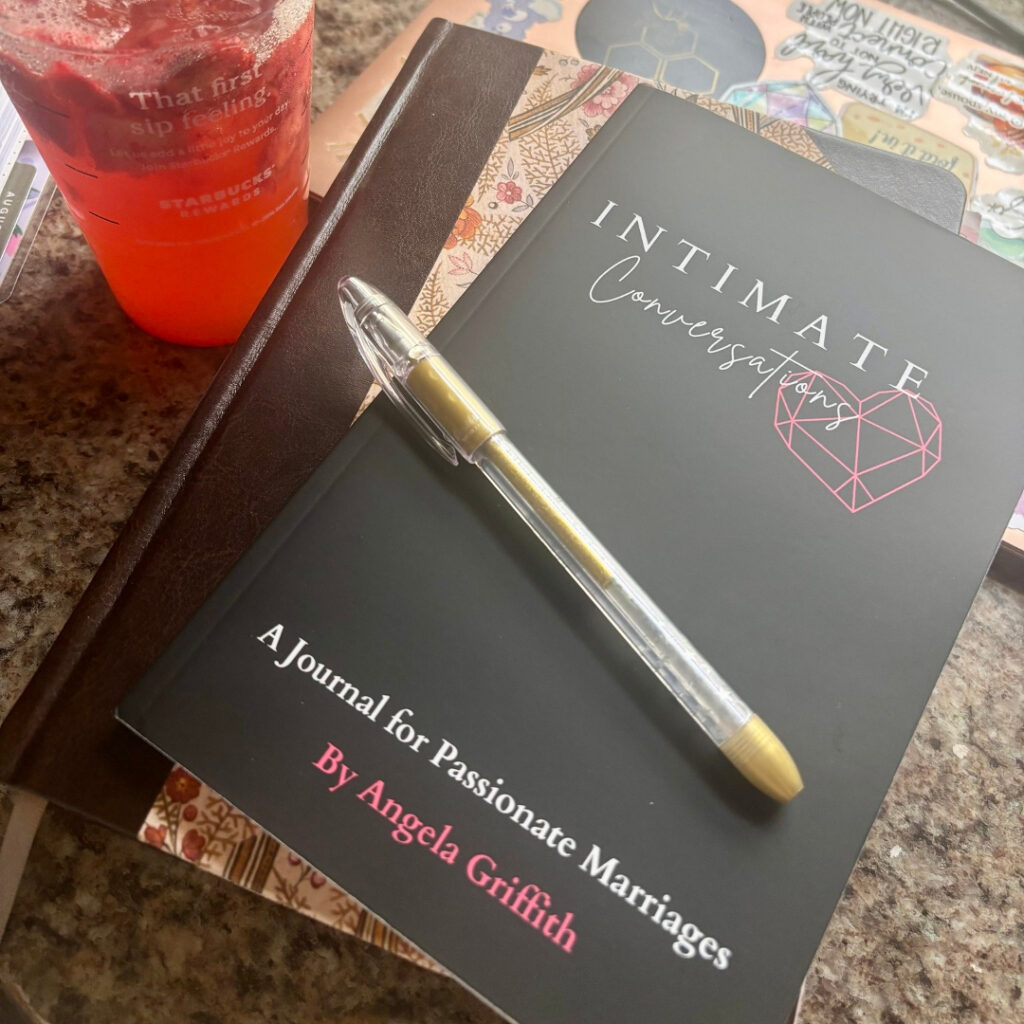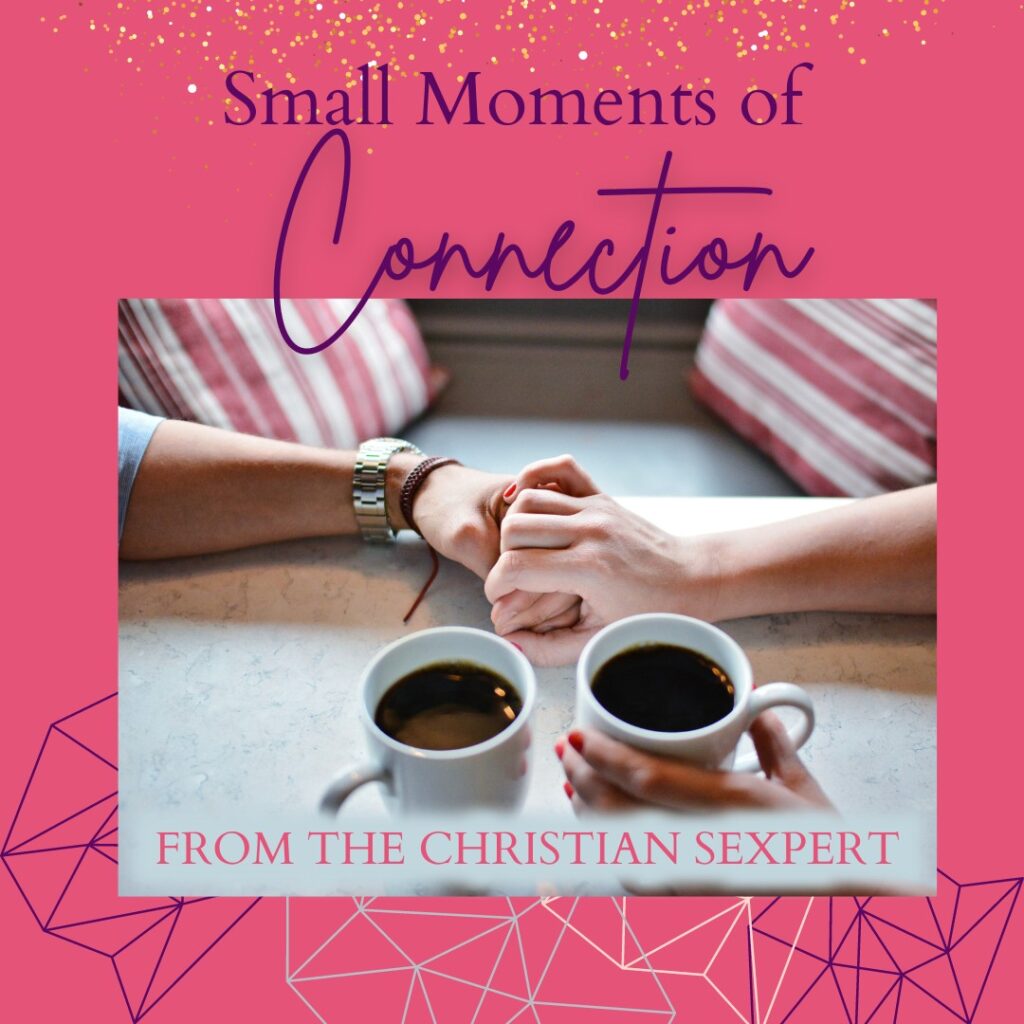This post was written by Angela Griffith, the Christian Sexpert. Learn more at thechristiansexpert.com.
Christians receive a lot of conflicting messaging about sex and our sexual selves, especially women. Our greater American society is certainly over-sexualized. In response, many churches tried to overcompensate as a way to protect their young people, but we wound up with purity culture and the trauma that brought instead.
The Fruit of Purity Culture
Purity culture is a movement of the late 70’s through today that has sought to control teenager’s behavior through high shame and control techniques. We now have scientific studies that show it has caused lasting damage for many people. To learn more about purity culture, see Recovering from Purity Culture by Dr. Camden Morgante.
While this article is not about purity culture, it would be remiss of me to try to discuss sex from a Christian worldview without acknowledging that it is likely the reader has been harmed by it in some way, especially if they were raised in evangelical culture.
Because this messaging doesn’t disappear after the wedding. It just mutates.
- “The Bible says you can’t deprive him.”
- “If you don’t give him enough sex he’ll cheat.”
- “Oh, every man struggles with lust or pornography. Just give him more sex so he won’t feel the need to look.”
But none of this is Biblical.
Furthermore, obligation kills desire. So hearing messages like these–online, in small group Bible studies, or even from the pulpit–will create an environment where you don’t feel safe to be sexual at all, while also feeling as though you absolutely must in order to keep your marriage.
Is there a better way? What if we looked at Biblical sexuality, and used that to model our sex messaging?

What the Bible Actually Says
When we look at healthy sexuality in the Bible, we only ever see mutual pleasure. There is never any obligation sex or sacrificial sex. Have you ever been told you need to love sacrificially and have sex even if you don’t feel like it? I see that message often; there’s no Biblical model for that.
In fact, in Song of Solomon, we see the Shulammite woman turn down the king’s sexual advances. He accepts her “no” with grace and zero pressure. Song of Solomon 5:2-6 says,
Listen! My beloved is knocking:
“Open to me, my sister, my darling, my dove, my flawless one. My head is drenched with dew, my hair with the dampness of the night.”
I have taken off my robe—must I put it on again? I have washed my feet—must I soil them again?
My beloved thrust his hand through the latch-opening; my heart began to pound for him. I arose to open for my beloved, and my hands dripped with myrrh, my fingers with flowing myrrh, on the handles of the bolt.
I opened for my beloved, but my beloved had left; he was gone.
A few chapters later, we see the couple connecting non-sexually before jumping into bed together. He spends time just enjoying and praising her appearance, praising her and letting her know how deeply he adores her:
How beautiful your sandaled feet…
Your hair is like royal tapestry…
How beautiful you are and how pleasing, my love, with your delights!
In the first part of Song of Solomon 7, he is simply praising her. Then in verse 11 they go away together, and in verse 12 she says, “There I will give you my love.”
This all leads us to one of the foundations of my work: The 13 Types of Intimacy.

The 13 Types of Intimacy
I believe there are 13 types of intimacy we can experience in marriage, and sex is meant to be the celebration of the other 12 that you’ve cultivated before you ever get to the bedroom.
I often see coaching clients who come to me because of libido differences. Most of the time, he wants sex far more than she does, and she feels broken or overwhelmed. Sound familiar? The first thing I ask each couple is: When was the last time you had fun together? When was the last time you laughed together?
I am nearly always met with blank stares. “We have small kids. We don’t have time or the money for date nights right now.”
But I’m not talking about date nights.
In fact, contrary to almost every other marriage expert out there, I don’t find date nights to be essential to marriage if you are intentional about your intimacy in other ways.
You see, lack of sex is not the real problem in a marriage; it is the symptom of the deeper issue. If there is a problem with sex, the couple is already struggling, because God never meant sex to be the foundation of a marriage–something else completely unbiblical I’ve heard time and again.
Old Testament Law told married couples they couldn’t even touch each other for about two weeks a month! Specifically while she was on her period and until she was able to visit the Mikva for the ritual cleansing afterwards. In postpartum, men were not permitted to touch their wives for 40 days following the birth of a son, and 80 days following the birth of a daughter.
Further, ancient Jewish custom required men to abstain from sex while they were at war, or were on military missions. 1 Samuel 21:5 says, “David replied, ‘Indeed women have been kept from us, as usual whenever I set out. The men’s bodies are holy even on missions that are not holy. How much more so today!'”
God never meant for sex to be a need (for any human), or for it to be the foundation of a marriage. He expected people to connect to their spouse in other ways when sex was not possible–an invitation God still has for us today.
As a side note, if sex is the foundation of your marriage, what will you do the first time it is off the table? Due to birth, injury, illness, even simple aging? And doesn’t sex as a celebration sound way more fun than sex as an obligation anyway?


Practical Next Steps
Back to the 13 intimacies: I find recreational intimacy to be a great barometer for the overall health of a marriage. It is often one of the first things to go when a couple is struggling. Recreational intimacy is all about how you have fun together beyond date night.
Recreational intimacy sounds like it should be this big involved thing. But it can be as simple as keeping a deck of cards in the kitchen and playing a round or two of a card game after dinner while the kids get their post dinner crazies out.
You see, intimacy isn’t built on date nights (though they can be fun, don’t get me wrong). Intimacy is built in small moments in the every day mundane things:
- Intellectual intimacy: listening to a podcast together (I recommend The Go Have Good Sex Podcast)
- Aesthetic intimacy: picking out new paint for the living room together
- Work intimacy: working next to each other in the garden, harvesting the vegetables you planted in the spring
- Commitment and Communication intimacies: planning the growth of said vegetables
- Parenting intimacy: watching your husband gently guide your hormonal tween through a meltdown (and finding that the sexiest thing you’ve ever seen him do!)
Intimacy doesn’t take hours and hours and piles of money. But it takes intention, cultivation. It might mean giving up scrolling TikTok so you can look through your wedding album together (commitment intimacy). It might mean reading a parenting book together so you can talk about your goals for your children.
When you start intentionally cultivating the other 12 intimacies, the sex usually starts to take care of itself. You have a lot more to celebrate when you get to the bedroom!
Start Small
Use my Small Moments of Connection guide as inspiration to choose one intentional activity you’ll start doing a few times a week. Nothing big or time consuming, or you won’t be able to stick with it. Just something you can do for 10 or 15 minutes, a few times each week to start getting into each other’s faces and remembering why you love each other.
If you would like to go a bit deeper, check out my 31 Days of Intimacy, which walks you through each of the intimacies in intentional ways.
And finally, if you feel like you need personalized support, I offer coaching where we can develop a plan for intimacy completely tailored to your life and marriage.
You deserve to have good sex! Sex that is the overflow of intimacy you’ve established before you ever reach the bedroom.
Go have good sex!

A challenger of the status quo and a disruptor of what has always been, Angela Griffith is known as The Christian Sexpert to over 100,000 social media followers. Her relationship with Jesus started at age 19. While she wasn’t raised in purity culture, she did get a heaping helping of it at college after her salvation experience. She is a sex and intimacy coach, using her platform to provide the sex education you wish you had received.
Angela has dedicated over 20 years to the study of human sexuality and God’s design for sex, using social media as a way to change the narrative from inside the house. She sees the damage of purity culture but knows that God tells us He wants us to have abundance in all areas of our lives–including sex. Her passion is coaching women to discover a healthier relationship with their God-given sexuality. She was most recently featured at the Woman Evolve Conference with Sarah Jakes Roberts.
Angela is a wife, mother, international ministry leader, a lover of all things glitter, and ready to set marriages on new paths with her iconic catchphrase, “Go have good sex!”
